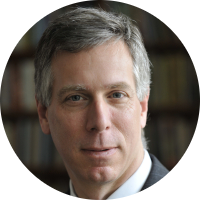Recent Developments in Nigeria: Subsidies, Spills and Security
Speakers
Howard F. Jeter, former US Ambassador to the Federal Republic of Nigeria;
Olav Ljosne, Senior Manager for Shell's International Operations;
Deirdre LaPin, Ph.D., MPH, African Studies Center at the University of Pennsylvania;
Eunice Reddick, Director of the Office of West African Affairs, State Department;
Peter M. Lewis, Ph.D., Associate Professor and Director of the African Studies Program at Johns Hopkins University;
Steve McDonald, Director of the Africa Program and Project on Leadership and Building State Capacity, Wilson Center
As a result of the unrest caused by Boko Haram and the removal of the fuel subsidy, the Jonathan administration, which had been largely viewed favorably, “could find itself in a continuous state of siege,” warned Deirdre LaPin of the African Studies Center at the University of Pennsylvania. It would behoove the government “to change its stance to one of proactive leadership in order to find unifying solutions for the country,” she stated. Initiatives to unify the population were deemed sorely necessary at a time of volatility as the latent causes of the unrest as well as ways in which the government could mitigate it were discussed at a roundtable meeting at the Wilson Center on January 30, 2012.
Oil Spills in the Niger Delta
Howard F. Jeter, former US Ambassador to the Federal Republic of Nigeria, opened the event with sobering commentary and figures. He cited a report which estimated that there had been an oil spill in the Niger Delta the size of the Exxon Valdez spill every year since the 1960s, and that there are currently 2,000 spill sites requiring cleanup in the delta. In light of recent protests over the government’s removal of the fuel subsidy, Jeter asserted that “we’ve seen something extraordinary in Nigeria.” Against this backdrop, the panel addressed the issues of oil subsidies, spills, and security.
Olav Ljosne, Senior Manager for Shell’s International Operations, observed that improved security has permitted the company to deepen its activities in the regions where it operates. He maintained, however, that as an oil company working primarily in the Niger Delta, Shell would not be at liberty to comment on recent issues in the North. Ljosne said that oil spills did indeed pose challenges and conceded that “it’s certainly an area where we are not proud of the situation,” but that the most recent spill has been contained and has been rectified. He took a differing view of the frequency and volume of oil spills than that of Ambassador Jeter, claiming that there was “no scientific or proper evidence that [those] figures are correct when it comes to the [totality of spills] in the Niger Delta.”
Destabilizing a New Administration?
Deirdre LaPin asserted that the current situation in Nigeria was a turning point in the country's history, with even President Goodluck Jonathan "[conceding] that Nigeria had reached a dismal watershed resembling the Biafran war." She said that the popular unrest resulting from the government’s abrupt removal of the fuel subsidy is an extension of the resolute spirit that swept through Nigeria during the April elections, which “mobilized the Nigerian people around a single unifying idea of […] a free and fair election.” She charged that, although the lifting of the fuel subsidy made macroeconomic sense, it precipitated a doubling of fuel and commodity prices, leading to an exasperated population feeling betrayed. The Nigerian people, by and large, also felt subjected to governmental caprice, because the “announcement came as a notice posted on the website of a lesser government agency; it lacked the courtesy of public preparation and explanation from the head of state.” LaPin admonished the coalescing of these factors as they had the potential to destabilize the government, and that it would be imperative to “communicate in a more concerted and sophisticated way with the population of Nigeria” to surmount the current obstacles.
A Sense of Division
Director of the State Department’s Office of West African Affairs and former Ambassador to Gabon, Eunice Reddick, spoke of the positive elements of last year’s elections, but noted Abuja’s ineffectiveness in addressing the problems of the North. Notwithstanding the fact that Boko Haram “does not enjoy popular support in the North; […] does not provide practical solutions to Northern problems; and […] furthers philosophies and tactics most Muslims and Christians abhor,” the group is, in effect, able to “capitalize on popular frustrations with corruption, inequality, and poor delivery of government services.” She said that to move forward the government would need a “credible [Northern partner] who can coordinate state and national efforts on key social and economic grievances in the North” and “deny the ability of Boko Haram to exploit ethnic and religious differences by demonstrating the benefits that a pluralistic society has to offer.”
Associate Professor and Director of the Johns Hopkins University’s African Studies Program, Peter Lewis, discussed the fluidity of the situation in the North and the popular discontent with the halting of the fuel subsidy. In addressing the matter of Boko Haram, he attributed their success to a pungent sentiment on the part of northerners after the April elections aggrieved that their, “ability to […] maintain some purchase on national power […] had failed, and that the North had simply lost any sense of identity or any sense of power.” He associated with Reddick’s remarks concerning Boko Haram’s base, saying that the group “is essentially a sect that has a claim on the loyalties and ideas of only a tiny minority of northern Nigerians,” yet “taps into a broader sense of resentment, of anger, a sense of marginality, and a broader catchment and demographic of alienated, unemployed, poorly educated Northern youth.” With respect to the withdrawal of the fuel subsidy, he stated that the measure was economically sound in macro terms, as the subsidy had primarily benefitted the elites, siphoned money from the budget, and distorted the price of fuel. However, he concurred that the population was insufficiently prepared for the maneuver. Lewis linked the two issues by saying that there is “an unfortunate resonance of division in Nigeria, a sense of marginality, and a deep-seated failure of government to provide some sense of opportunity, [hope, and basic accountability to the population].”
A Confluence of Events
The themes of populist resentment and alienation that inform the popular reaction to Abuja’s record of the past few months in regards to the fuel subsidy and its response to provocations from Boko Haram were assessed. The panel expressed concern for a government that has failed to adequately provide services to its citizens, and desperately needs to better engage and communicate with the population, whether in the North to weaken the appeal of Boko Haram, or in general to assure a broader sense of inclusion. Failing to tackle these matters head on, may well pose ominous harbingers for national cohesion and Nigerian unity.
Speakers


Senior Research Associate at the University of Pennsylvania
Hosted By

Africa Program
The Africa Program works to address the most critical issues facing Africa and US-Africa relations, build mutually beneficial US-Africa relations, and enhance knowledge and understanding about Africa in the United States. The Program achieves its mission through in-depth research and analyses, public discussion, working groups, and briefings that bring together policymakers, practitioners, and subject matter experts to analyze and offer practical options for tackling key challenges in Africa and in US-Africa relations. Read more
